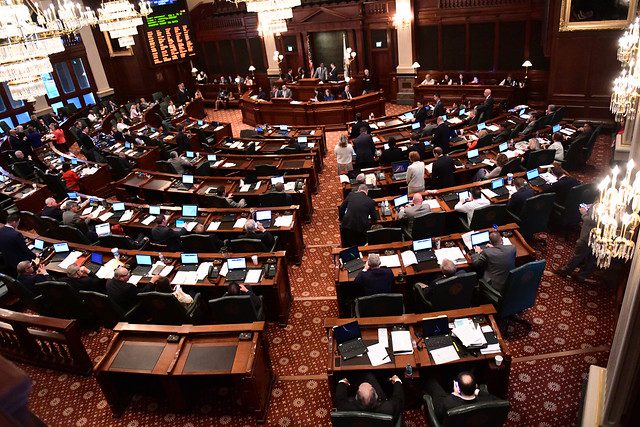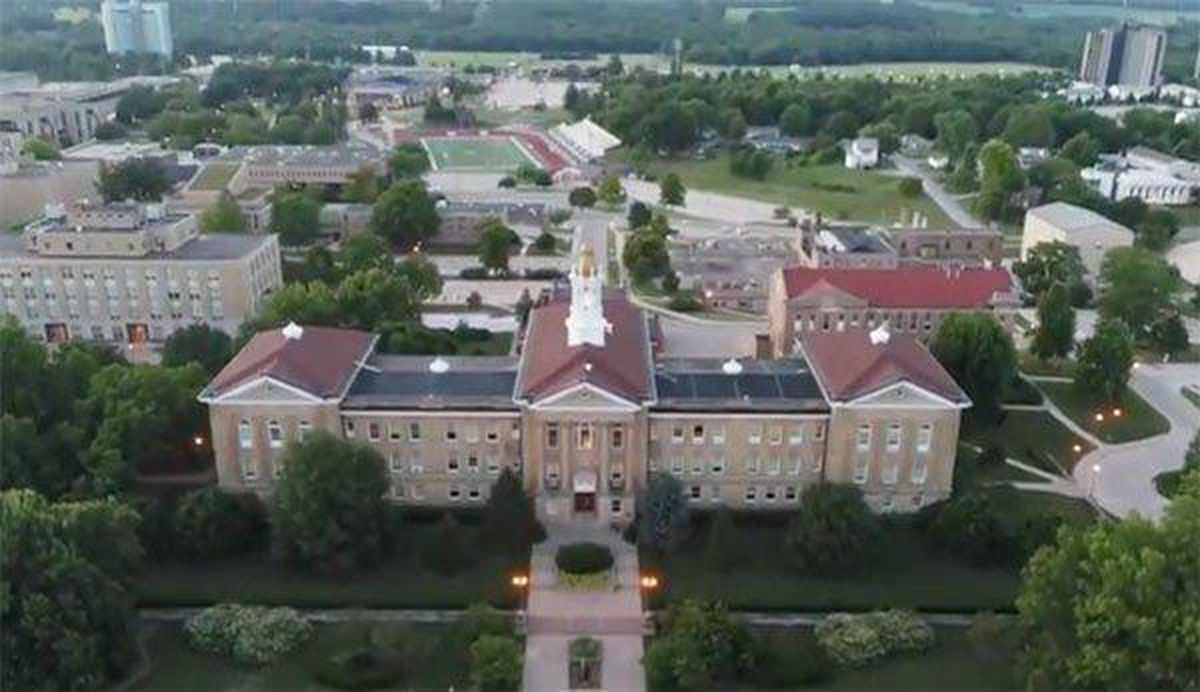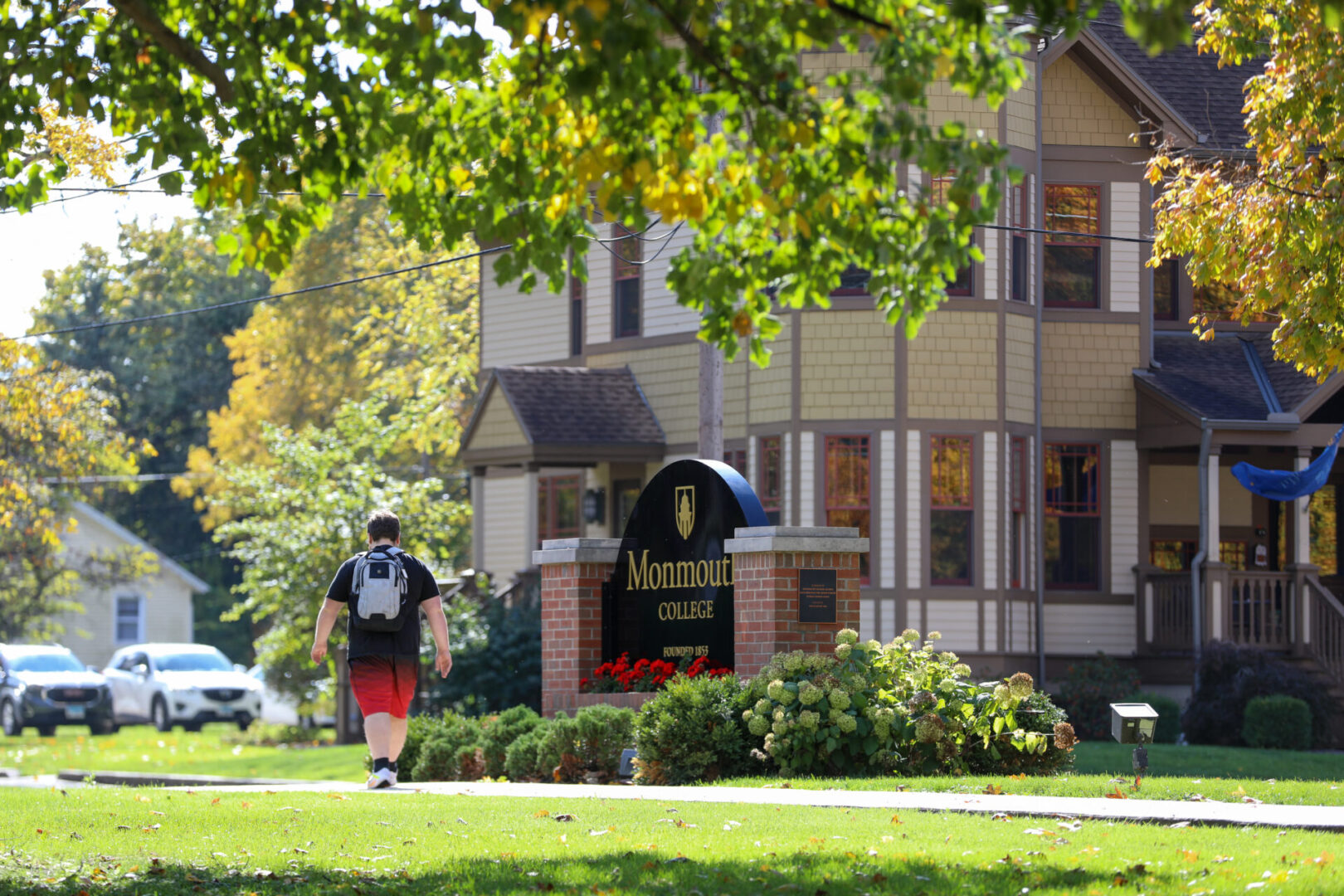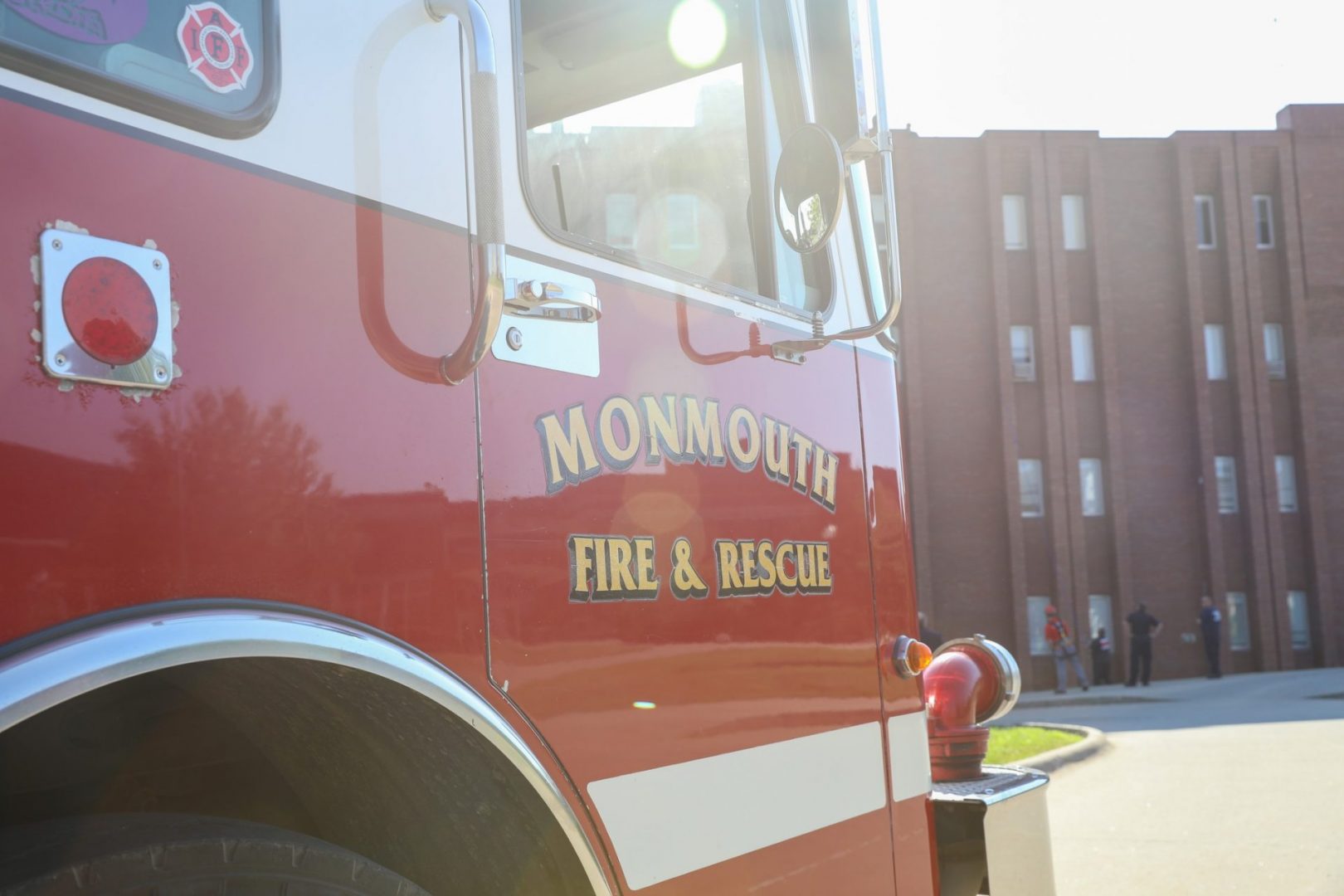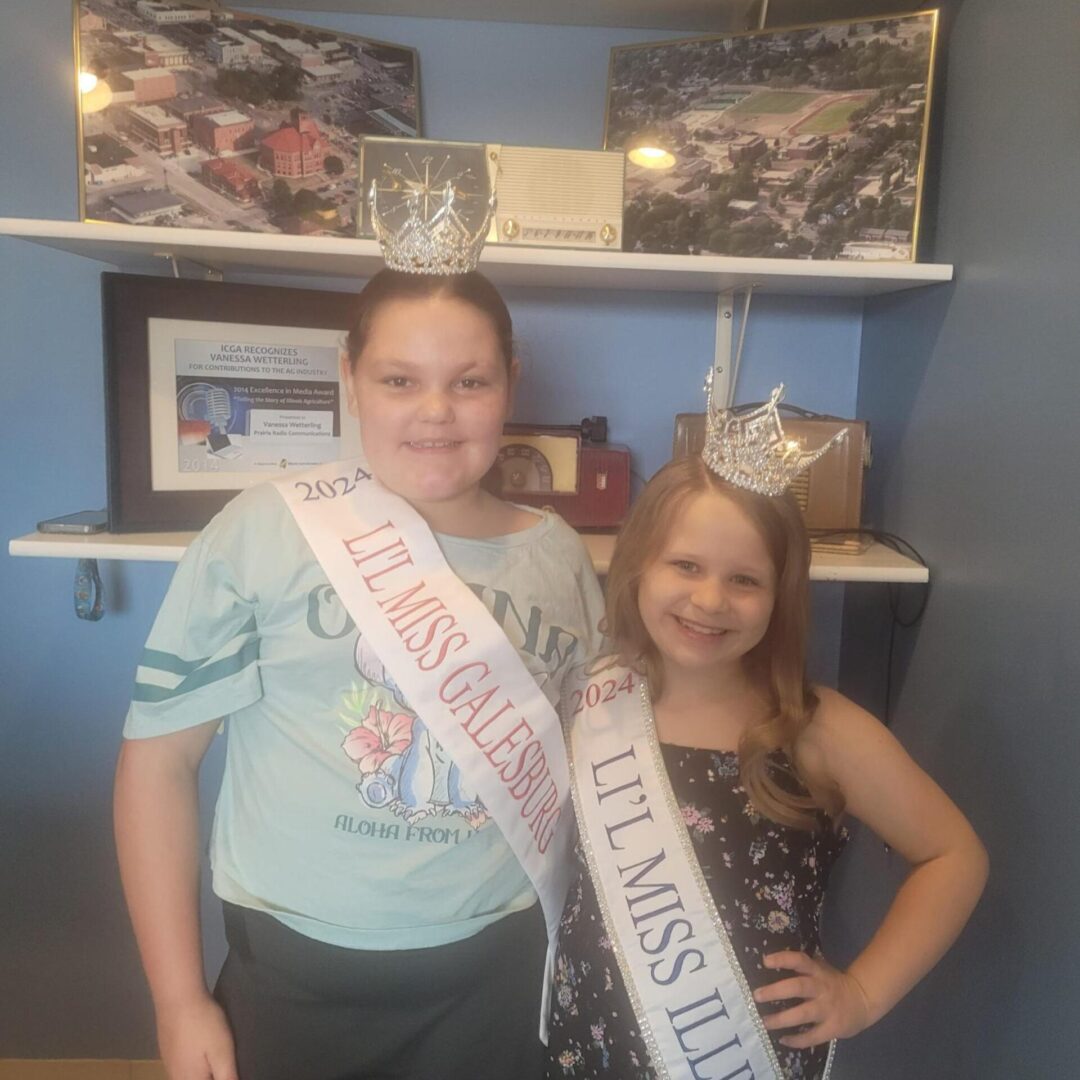No movement on efforts to extend scholarship tax credit, allow legislative staff to unionize
By ANDREW ADAMS & JERRY NOWICKI
Capitol News Illinois
news@capitolnewsillinois.com
SPRINGFIELD – With one scheduled day left in the General Assembly’s fall veto session, lawmakers advanced measures that would allow new nuclear power construction in Illinois and usher in the electrification of government vehicles in the next decade.
The two-week veto session has seen heated debate over these and other subjects, including regulating the yet-to-be-formed elected Chicago School Board and the controversial Invest in Kids tax credit program – measures that have seen little legislative movement thus far.
Already, several items have been punted to lawmakers’ spring legislative session, while others are likely to be pushed off as members seek to wrap up their always-brief fall session on Thursday.
Nuclear moratorium
After months of behind-the-scenes discussion, lawmakers on Wednesday advanced a proposal that would allow nuclear construction in the state for the first time since 1987. The subject has been the source of much debate since May, when a different bill, Senate Bill 76, passed with bipartisan majorities before being vetoed by Gov. JB Pritzker. The governor cited concerns over the bill’s lack of “regulatory protections for the health and safety of Illinois residents.”. The new bill, House Bill 2473, achieves a similar end – allowing new nuclear construction in Illinois – with much stricter regulations on the type of nuclear reactors that could be built and more state-level oversight. Under the proposal, only nuclear reactors with a capacity of under 300 megawatts – around one-third the size of Illinois’ current smallest reactor – would be permitted.
Sen. Sue Rezin, R-Morris, the lead sponsor of the original legislation and sponsor of the new bill, said that the new nuclear technologies can be used in industrial and agricultural settings to alleviate some of the pressures of transitioning away from fossil fuels. Read more: Gov. Pritzker vetoes bill that would have allowed new nuclear construction
“What’s important to say is that the state of Illinois is open for new investment in this new nuclear technology,” Rezin said after the bill passed. “Our nuclear submarines and our aircraft carriers have been using this type of nuclear for many, many years. What we would like to do is commercialize that technology.”
After passing in the Senate 44-7, the measure now goes to the House for consideration.
Pritzker vetoed the original bill amid lobbying efforts from environmental advocates who oppose nuclear energy. Jack Darin, the head of Illinois’ chapter of the Sierra Club, co-signed a letter to Pritzker requesting the veto, outlining concerns over cost, waste management, concerns over nuclear locations and more.
Darin said he and the Sierra Club remain opposed to the new bill.
“At best, it’s a distraction,” Darin told Capitol News Illinois Wednesday. “At worst, it’s opening a can of worms.”
Despite lingering environmental opposition, the new bill drew support from many Senate Democrats and is sponsored by a Democrat in the House.
During debate on the bill Wednesday afternoon, state Sen. Patrick Joyce, D-Essex, said his father Jerome Joyce, who was also a state senator, sponsored the state’s original nuclear moratorium in 1987.
“As technology changes, we need to make sure that we change with it,” Joyce said. “This is a good step.”
Government vehicles going electric
On Wednesday, the Senate also passed a measure that would require the state to purchase exclusively “zero-emission vehicles,” such as electric vehicles, after Jan. 1, 2030.
The measure excludes law enforcement vehicles and vehicles purchased by the Illinois Department of Transportation as part of a program that provides buses to some mass transit systems.
The Senate approved the bill 37-18. It passed in the House in May, 69-35, meaning it needs only a signature from the governor to become law. Bill sponsor Sen. Rachel Ventura, D-Joliet, called Senate Bill 1769 an environmental and cost-saving measure. Read more: Battery manufacturing plant coming to Illinois – with $530M incentive deal
“This is just one step toward mitigating the impacts of the climate crisis. Illinois continues to lead other states, but there is more work to do,” she said.
The bill was met with opposition from GOP members. Sen. Steve McClure, R-Springfield, said he was worried about not knowing whether, in 2030, the state would have to rely on foreign countries’ battery production capabilities.
“There are plenty of discussions between now and then about how to do this in a responsible way once, hopefully, the United States is more of a battery producing country,” McClure told his Senate colleagues Wednesday.
Other measures stagnate
Lawmakers have yet to take up some of the other major proposals that have been the subject of negotiations and publicity.
While advocates for a tax credit program for donors to private school scholarship funds continued to rally at the Capitol for the program’s extension Wednesday, the only bill that’s been filed to do so remained far from passage.
The Invest in Kids program is scheduled to reach the end of its five-year life on Dec. 31. The program, which launched in 2018, costs the state $75 million annually in tax breaks for donors to six state-approved nonprofits that fund private school scholarships. Those funds awarded nearly 10,000 scholarships last year. But due to procedural requirement, sponsors of House Bill 4194 – which would scale down the program in an effort to save it – would need to find a new bill number and three-fifths majority support from fellow lawmakers to take effect in time to save the program.
Lawmakers were also deep into closed-door negotiations on what changes are needed to implement a previous bill shifting Chicago Public Schools from an appointed to an elected board. While one proposal passed the House Wednesday afternoon, another was teed up for passage in the Senate.
A measure that would allow legislative staff to unionize, meanwhile, appears to have stalled in the Senate after clearing the House with broad Democratic support during the first week of veto session last month. House Bill 4148 was sponsored in the House by Speaker Emanuel “Chris” Welch, D-Hillside, to create the legal framework for staff unionization. He pushed the bill through the House last month following months of criticism from some on his staff who were seeking voluntary recognition to form a union. Read more: House approves framework allowing legislative staff to unionize
It arrived in the Senate on Oct. 26, where its sponsor is Senate President Don Harmon, D-Oak Park, and it has not received an assignment to a substantive committee. Unlike in the House where it had 38 cosponsors, no senators had signed on to the bill as of Wednesday afternoon.
Harmon’s office has not given any indication that he plans to call the measure for a vote. A spokesperson gave the same statement Wednesday that he did when the bill was filed in the House – the president plans to give it a “thorough review.”
If the bill doesn’t move in the veto session, lawmakers could revive it when they return in January.
***Courtesy of Capitol News Illinois***


